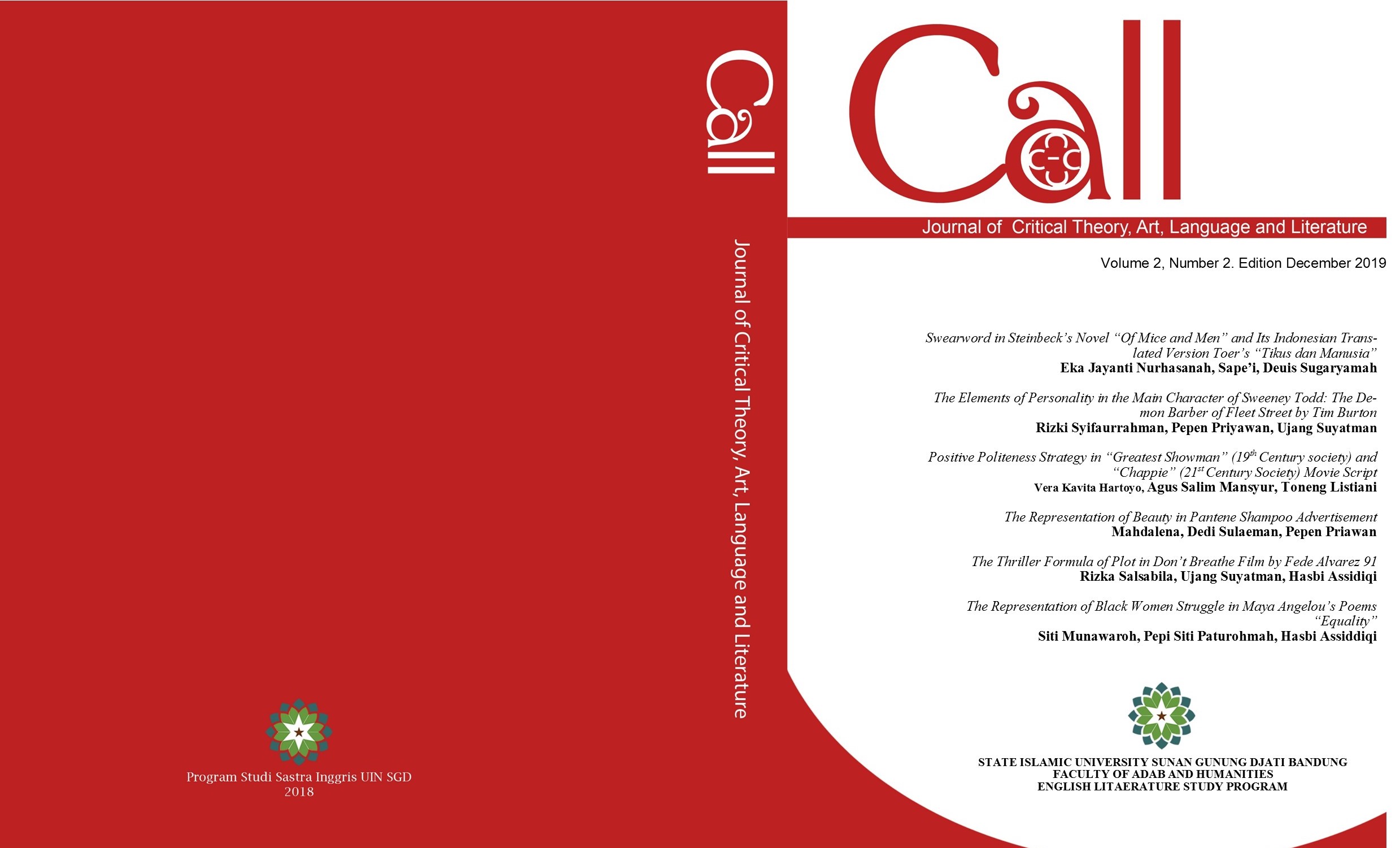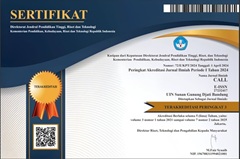POSITIVE POLITENESS STRATEGY IN “GREATEST SHOWMAN†(19TH CENTURY SOCIETY) AND “CHAPPIE†(21ST CENTURY SOCIETY) MOVIE SCRIPT
DOI:
https://doi.org/10.15575/call.v1i2.6447Abstract
The research is a pragmatic study on positive politeness strategies employed by the main characters in “ Greatest Showman†and “Chappie†films in the context of differences certain the century society. the researcher use Brown and Levinson’s theory of positive politeness theory. Politeness is the way of self strategies in communication to others, in order to received their meanings well. The objectives of this research are to find out the types of positive politeness strategies by main character in the setting 19th Century society (Greatest Showman film) and 21st Century setting society (Chappie film) and to find out factors affecting main character to choice that strategies. The researcher used a qualitative method since the data engaged are displayed in the form of strings of words. The result shows that Phineas in “Greatest Showman†that can be conclude in 19th century society, generally showed social class, kept family relation well, and respected for abnormal people. Diffrent with Deon in “Chappie†film that can be conclude in 21st century society, people concern with technology development, a lot of gangster who do the crime, and people communicate only in certain interests.
Keywords: Pragmatics, Politeness Strategy, Movie Script
Downloads
Additional Files
Published
Issue
Section
Citation Check
License
Authors who publish in CALL agree to the following terms:
- Authors retain copyright and grant the journal right of first publication with the work simultaneously licensed under Attribution-ShareAlike 4.0 International (CC BY-SA 4.0) License that allows others to share the work with an acknowledgment of the work's authorship and initial publication in this journal.
- Authors are able to enter into separate, additional contractual arrangements for the non-exclusive distribution of the journal's published version of the work (e.g., post it to an institutional repository or publish it in a book), with an acknowledgment of its initial publication in this journal.
- Authors are permitted and encouraged to post their work online (e.g., in institutional repositories or on their website) prior to and during the submission process, as it can lead to productive exchanges, as well as earlier and greater citation of published work (See The Effect of Open Access).




